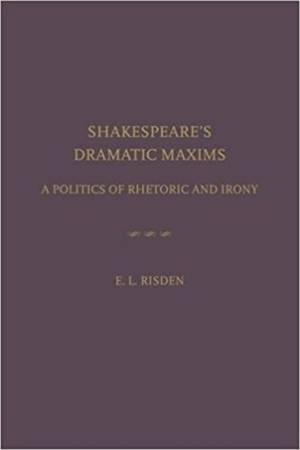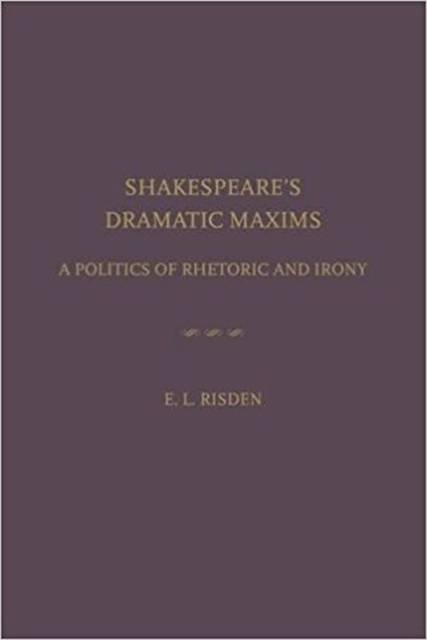
- Afhalen na 1 uur in een winkel met voorraad
- Gratis thuislevering in België vanaf € 30
- Ruim aanbod met 7 miljoen producten
- Afhalen na 1 uur in een winkel met voorraad
- Gratis thuislevering in België vanaf € 30
- Ruim aanbod met 7 miljoen producten
Zoeken
€ 114,95
+ 229 punten
Omschrijving
"Professor Risden (Saint Norbert's College, author of SHAKESPEARE AND THE PROBLEM PLAY) introduces the idea of and history of maxims, identifies maxims in Shakespeare's plays treating the plays in chronological order, and comments on how the maxims influence the plays in which they appear. Among them are Glouster saying 'A staff is quickly found to beat a dog' in Henry VI Part 2, Aaron saying 'Two may keep counsel when the third's away' in Titus Andronicus, Shallow saying 'A friend in court is better than a penny in purse' in Henry IV, Part 2, and Orlando saying 'How bitter a thing it is to look into happiness through another man's eyes' in As You Like It. This study contributes to the complete study of the maxims in their social and political context. Recommended for library collections and researchers." ------------ProtoView Book News April 2016 This scholarly monograph, "Shakespeare's Dramatic Maxims," explores Shakespeare's use of maxims (defined as short, pithy statements of wisdom) in the plays, with special attention to their period social and political implications and how they affect reading and staging of his plays today. While some works (scholarly and popular) have explored proverbial aspects of Shakespeare's language ( an entire subgenre of Bardolatry discusses how one can use his sayings to live a better life) but no major study has yet done an analysis of who speaks the maxims and to what effect--they have particular political import that few have as yet considered with the universe of a complete collection of maxims from all the plays. And this import has evolved throughout the ages as the meaning and purpose of his work has taken new meanings. Part 1 comprises an introduction that discusses the historical importance of maxims plus relevant scholarship on Shakespeare's language and politics; Part 2 includes a complete list of the dramatic maxims, proceeding through the plays chronologically; Part 3 pursues how the maxims help the reader and researcher develop readings of the plays, again moving through them chronologically; a robust index and bibliography (Works Cited) concludes the manuscript.
Specificaties
Betrokkenen
- Auteur(s):
- Uitgeverij:
Inhoud
- Aantal bladzijden:
- 268
- Taal:
- Engels
Eigenschappen
- Productcode (EAN):
- 9781680530124
- Verschijningsdatum:
- 23/04/2016
- Uitvoering:
- Hardcover
- Formaat:
- Genaaid
- Afmetingen:
- 152 mm x 229 mm
- Gewicht:
- 527 g

Alleen bij Standaard Boekhandel
+ 229 punten op je klantenkaart van Standaard Boekhandel
Beoordelingen
We publiceren alleen reviews die voldoen aan de voorwaarden voor reviews. Bekijk onze voorwaarden voor reviews.











